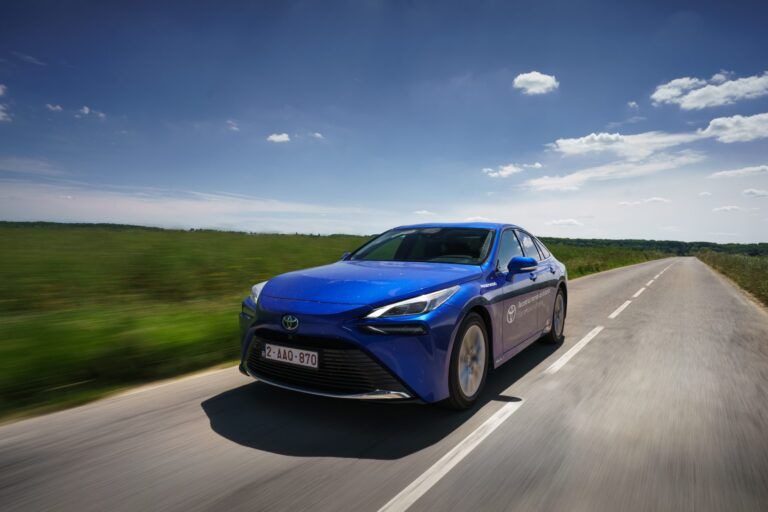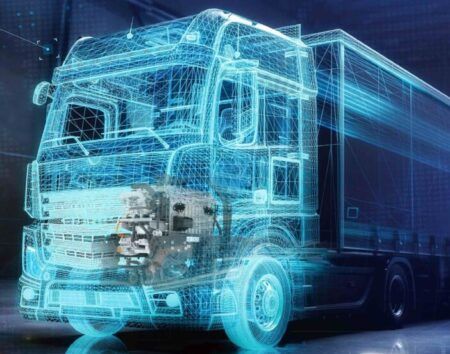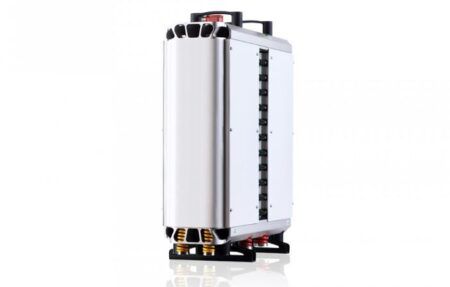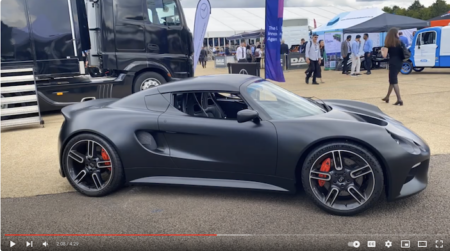A Toyota Mirai has covered more than 1,000 kilometers on a single tank of fuel, breaking the previous long-distance record achievements for a hydrogen fuel cell vehicle.
The journey, undertaken in France during Paris de l’hydrogène – an exhibition on hydrogen and renewable energies – started in Orly and covered 1,003 kilometers of public roads in the Loir-et-Cher and Indre-et-Loire areas, with the distance and fuel consumption certified by an independent authority.
Green hydrogen was used to fuel the Mirai and overall consumption was measured at 0.55 kg/100km. Upon completing the challenge, the Mirai was refueled within five minutes.
Frank Marotte, CEO of Toyota France, reflects on the achievement: “It’s an amazing result that we achieved with the new Mirai. One that embodies the mindset of Toyota’s Start your Impossible mentality of going beyond our own limits. This drives us and we proved it again today. I would like to thank the teams of Toyota France and Toyota Europe, as well as Victorien at Energy Observer, with whom we share the same vision and the same ambition. It is through strong partnerships that we will be able to contribute to a better and more environmentally friendly society.”
Four drivers completed the drive, including Victorien Erussard, the founder and captain of Energy Observer – a self-sufficient, zero-emission boat that uses a Toyota fuel cell stack.
As well as operating the round-the-world vessel, Energy Observer is a company that combines expeditions with investigating sustainable energy solutions. It recently presented an exhibition village dedicated to renewable energies and hydrogen in Paris.
During that event, the Eiffel Tower was illuminated using green hydrogen, thanks to the GEH2® hydrogen generator developed by the EODev start-up organization, of which Toyota is a shareholder.
Victorien Erussad, founder and captain of Energy Observer, was excited by the scale of the challenge: “I am very happy to have taken this challenge of 1,000 kilometers behind the wheel of the new Mirai. Toyota has always been at the forefront of hydrogen innovation and our collaboration gets stronger year on year. As a former open ocean racer, I need to take challenges and I warmly thank Frank Marotte and his teams for taking me on this zero-emission adventure, showing that nothing is impossible and that hydrogen mobility is here today!”
James Olden, an engineer at Toyota Motor Europe, Maxime le Hir, Mirai product manager and Marie Gadd, PR manager of Toyota France were the other three drivers who completed the drive.
The new Mirai is the second-generation fuel cell electric vehicle from Toyota. It offers enhanced driving performance, better fuel efficiency, a 30% greater range and a price tag almost 25% lower than its predecessor.
The increased efficiency of the fuel cell system, coupled with a 1 kg increase in hydrogen capacity gives the Mirai a certified range of approximately 650 kilometers (400 miles), under normal driving conditions. While the 1,000-kilometre marker was broken by Toyota’s drivers adopting an economical driving style, no techniques were used that could not be replicated in everyday driving.
Toyota recently announced the launch of its Beyond Zero brand – encompassing a range of battery electric vehicles and an ethos to provide ever-better mobility for all. As well as battery electric vehicles, Toyota’s Beyond Zero approach highlights the advantages of all forms of zero emission, electrified mobility. It also prioritizes safety, comfort, extended range and ease of recharging – which is where fuel cell vehicles, with their long-distance capability and simple refueling fit in.
Hydrogen can deliver zero-emission mobility to passenger cars, road transport, rail, marine and air travel and can also be used to generate energy for industry and residential property.
Supporting efforts to democratize and diversify fuel cell applications, Toyota has worked with the makers of a number of hydrogen-fuelled products, including electric generators, boats, buses and trucks. It recently began construction of a new city in Japan – Woven City – that will incorporate fuel cells into its energy infrastructure.





